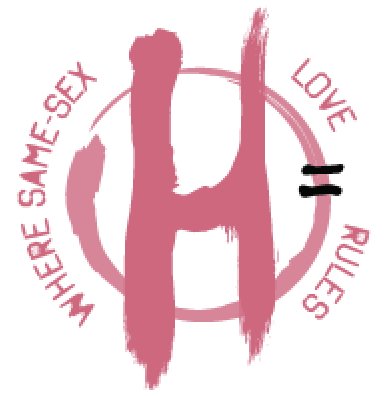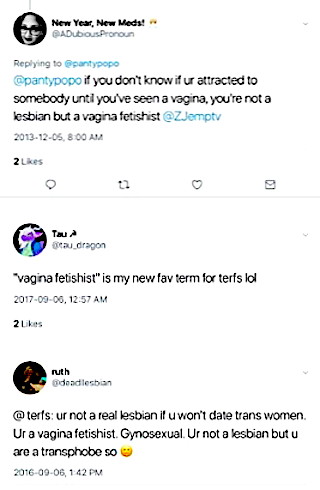GHQ Board Opinion: Sexuality as Social Justice Creates Problems, Especially Among LGBT Youth
by the Gender Health Query Board
To Dr. Karen Blair and Psychology Today,
We are writing this letter in response to a recent article in Psychology Today called “Why Are So Few People Willing to Date a Transgender Person?” Our organization was created for LGBT people concerned about the increase of medicalized, gender dysphoric youth, as well as some impacts of postmodern gender ideology on society (“your sex is what you declare it to be” “gender is a spectrum”).
The article fulfills a noble goal of expressing empathy for the rejection trans people face while dating. LGB people experience rejection in dating a lot as well. Dr. Blair wishes to correct people’s exclusionary behavior and increase the trans dating pool through public education:
Overall, it would appear that the most important step moving forward in terms of increasing the dating prospects for transgender and non-binary individuals is improving general education about the diversity of gender identities and what each identity means.
There are many articles like this and the idea that excluding trans people from a dating pool is akin to bigotry has permeated all LGBT youth spaces online, in support groups, and at universities. People usually (not always), say it’s not ok to “force someone” to have sex with someone they don’t want to have sex with. But there is always a “But.”
Dr. Blair provides that “But…” But…you are like a bigoted racist if you don’t date trans people (emphasis below ours):
Ultimately, each individual has the freedom to decide whom they date or are interested in dating, and thus our research does not attempt to make any statements concerning whom an individual should date or consider dating. At the same time, however, understanding the extent to which trans individuals are excluded from the realm of dating can serve as a benchmark for where society currently stands with respect to including trans and non-binary individuals. Just as sociologists have tracked acceptance of inter-racial relationships as a metric of overall societal acceptance of racial minorities, future fluctuations in the extent to which trans and non-binary individuals are included within the intimate world of dating may help to illuminate progress (or lack thereof) with respect to fully including trans and non-binary individuals within our society.
A trans man (who is part of Lambda Legal’s team), describes sexual orientation as “s****y and bigoted” for not being gender identity based, a concept Dr. Blair doesn’t take issue with based on her response:
Here she responds to a trans activist known for harassing scientists and authors, targeting comments towards their children even:
There is a tone of judgement peppered throughout the original study (emphasis ours):
Just as other partner preferences that specify races, body types or other features…
…have been critiqued for supporting normative ideals of beauty and exposing societal biases…
…we must also consider how patterns of excluding trans individuals (and their bodies) from the realm of dating expose continuing cisgenderism and transmisogyny within society…
…perhaps our general willingness to excuse discriminatory preferences
This whole study frames sexual attraction in terms of social justice.
Not everyone believes in self-declared biological sex or multiple, non-binary genders. And sexuality is not race. And not being sexually attracted to trans people or being homosexual or heterosexual is not akin to white supremacy. And while mainstream heterosexual people may be uncomfortable with outlier identities that more trans acceptance may help, most of the “sexuality as social justice” ideology is directed at people within the LGBT community, mainly gay men, lesbians, and even bisexuals. These are people who already do not have problems pushing sexual boundaries.
It may be difficult for mental health professionals to understand why many homosexuals start to become nervous at even a hint of framing a person’s sexual orientation as problematic, but LGB people have a history of issues with abuses from the mental health profession. Not all LGB people agree sexual orientation should be based on gender identity. Some are vehemently opposed to the concept.
And when a psychology magazine supports the idea that anyone, and in this case lesbians and gay men, can date the opposite sex if they are “educated” appropriately to respect someone’s gender identity, the suspicion is justified. It’s not that different from, Joseph Nicolosi and Charles Soccarides, founders of the organization known as NARTH (National Association for the Research and Therapy of Homosexuality), who proposed they could cure homosexuality through therapy and education. NARTH is now defunct but has resurfaced as the Alliance for Therapeutic Choice.
90% of the “sexual orientation is problematic” viewpoint is not directed at straight men, or straight women, or gay men, but towards lesbians. Because wanting to force people to live in a world that ignores biological sex does not actually erase patterns of behavior based on biological sex. Most of this gets directed at people with XX chromosomes by people with XY chromosomes. And it’s obvious why.
Psychologists, sociologists, and LGBT organizations should not be privileged to continue to ignore the unhealthy environment this has created for lesbian and female bisexual youth, who are in LGBT environments that promote the idea they are bigots if they have sexual boundaries. Lesbian and bisexual youth actually have high rates of sexual risk taking and pregnancy. Psychologists, and other mental health professionals, are well aware that teens and young women often do not have good boundaries. It is a problem if the LGBT groups they desperately need support from will ostracize them because of their sexual orientations. We are, in fact, seeing young women expressing guilt for lacking sexual attraction and know that they would be socially punished in ”queer” spaces if they admitted it. The rhetoric used by the people who do this is exactly the same as the rhetoric used by Dr. Blair.
Ideas have consequences. This is what some of those consequences are in the real world…
An expectation lesbians have penis in vagina intercourse with biological, most likely autogynephilic dysphoric males, because they like sex toys. This theme, “if you like sex toys it’s transphobic not to have p in v intercourse with trans women,” comes up frequently:
Some young people have come to believe they are owed sex. Rhetoric can devolve into extremely violent and sexually explicit comments. They are almost always directed at lesbians:
The concept that sexual orientation is problematic is creating confusion and poor sexual boundaries in LGBT youth (and adult) environments, particularly online but also in real life. You will find that these are not isolated incidences but part of a pattern on our site here.
It is also logically inconsistent for people to argue, be they gender activists or mental health professionals, that trans people have a right to body autonomy and body choice, but this is problematic when applied to lesbians or gay men or straight people. Yet that is what we are seeing day in and day out.
Imagine the outrage that would ensue from a Psychology Today article alternatively titled “Why Can’t Trans People Just Be Happy with Their Natural Bodies & Stop Having Sex Reassignment Surgeries.” Yet the study this article is based on is in the same vein.
Our board consists of a gay man well aware that only about 2% of the male population would be willing to date other men. This is a lower percentage than the rate of those willing to date trans people, which is 12.5% in this article. Our board also consists of two bisexual women, who also may be subject to dating exclusion but support the right of people to not have fluid sexual orientations and the rights of bisexuals to not be fluid and desire specific traits without guilt.
Sexually fluid people will be more willing to date trans people and social acceptance will make them feel more comfortable doing that. But it is not appropriate to tell people their sexual orientations are problematic because they are not based on another’s self-perception. And there are trans people who agree.
We are concerned that the social sciences are beginning to play an active role in feeling entitled to be intrusive into others people lives, sexuality, and opinions about gender. And we are concerned that mental health professionals are not properly managing the expectations of trans youth who are becoming angry when they learn body parts are important to other people’s sexuality.
You claim in the article that “Ultimately, each individual has the freedom to decide whom they date.” While this is a good caveat it isn’t protecting anyone from the harm that this is actually doing in some real-life situations. And gender ideology is now being reinforced to school children who are being taught to believe biological sex is literally based on identity alone, told they must use third gender pronouns, and that there are “dozens of genders.”
It is social scientists’ professional and moral obligation to consider unintended consequences and externalities to narratives and agendas they promote beyond unemotional presentations of data. The Psychology Today article is not an objective presentation of data.
DeeDee Massey:
I'd see value in psychologists using a study to derive questions to design another study to find out why trans people have problems, if any, finding dates. But this PT article seems to speculate and come to forgone conclusions.
By pushing these narratives, PT is helping to apply social pressure to coerce the public to play along with an agreed-upon fiction.
I've dated people of various gender expressions, from "GNC" to post-op TS. I've determined that I don't want to date someone who doesn't share my values of honesty and authenticity. Denying the truth of one's sex doesn't reflect my values.
We want everyone to have love and support. We want everyone in the LGBT community to be included in social and family institutions. We want an LGBT community based on mutual respect for other peoples’ personal boundaries. We think sexual flexibility is a great thing if that is someone’s true nature.
But people have a right to reject postmodern queer theory without being painted as “problematic” by the mental health profession. People have sexual orientations and a right to reject indentity-based views of how sexuality works. And the lack of acknowledgment of these rights has done a lot of serious, irrevocable damage within the LGBT population. Psychologists and sociologists need to be more aware of this because they are increasingly participating in promoting these ideas. Many in the LGB population and elsewhere, are not going to tolerate these recent attempts at sexual shaming from the left any more than they are from the right. It’s not enough to say “you can date whoever you want…but.” It’s time to role model sexual boundaries to LGBT youth and come out in favor of respecting them.
Thank you for your time







